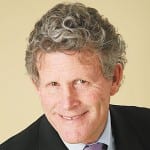 One of our enduring national myths is that demonstrations make a difference. Demos are a big deal; after all, the First Amendment explicitly guarantees the right of the people to peaceably assemble, and to petition the government for redress of grievances. Authoritarian governments typically ban or control dissent, so it’s comforting to realize that we can flood the streets with protesters and thereby affect policy.
One of our enduring national myths is that demonstrations make a difference. Demos are a big deal; after all, the First Amendment explicitly guarantees the right of the people to peaceably assemble, and to petition the government for redress of grievances. Authoritarian governments typically ban or control dissent, so it’s comforting to realize that we can flood the streets with protesters and thereby affect policy.
Dream on. Our confused, distracted and weakly authoritarian national government has few coherent policies, other than surviving from day to day. The looters who accompany today’s demonstrators are opportunists who just want free stuff, not idealists hoping to reform policing and create a more just and equal world.
Yet despite the chaos, the fires and the violence, we may be able to come together and create that world in our own community, if not in America’s great cities.
As cities such as New York, Chicago, Los Angeles and San Francisco have come to dominate the national economy, they’ve become difficult and unwelcoming for many residents. The wealthy thrive while the working poor and the middle class struggle. Such cities still attract smart, talented young people seeking fame and fortune, but reality bites. Homes are unaffordable, rents stratospheric, traffic unbearable and life stressful. Expect to share an overpriced apartment with several strangers and support yourself with fleeting part-time gigs. And if you don’t make it, you’ll need an exit strategy.
Try moving to a smaller city. Consider Colorado Springs and four of our neighbors along the I-25 corridor; Cheyenne, Greeley, Fort Collins and Pueblo. They’re diverse, interesting, welcoming and eminently livable. And most importantly, they have intact social networks that support residents.
Hundreds demonstrated in Fort Collins after George Floyd’s death. It’s a city of 170,000, but there was no violence. Posting on Facebook last week, Fort Collins Police Chief Jeff Swoboda spoke about use of force.
– Advertisement –
“The death of George Floyd has been on my heart and mind these last few days,” Swoboda wrote. “It’s a heartbreaking situation by all accounts, and words can’t begin to capture the depth of pain that people, especially people of color, are experiencing right now. Every single person deserves to feel safe when encountering law enforcement. Nobody should have to fear those who have taken an oath to serve and protect them. In Fort Collins, we work for our community, and we respect the human dignity and value the life of every person we meet.”
In a big city, such a statement would be dismissed as disingenuous public relations, but small city residents tend to have closer connections with their cops — and with each other. You anchor yourself in place by creating those connections, not only by networking but also by committing. You volunteer with nonprofits, you join book clubs, cycling groups and neighborhood organizations. You come to care deeply about your city and you build a life.
You won’t get rich. But you can aspire to a middle-class lifestyle with a house, a garden, a spouse and a kid or two. You’ll have clean air, interesting neighbors and neighborhoods, the mountains and honest, reasonably effective local governments. You won’t have world-class performing arts and museums, nor will you have crumbling infrastructure and constant urban noise and light pollution.
At 65,000 inhabitants, Wyoming’s capitol Cheyenne is the smallest city on the list. Settle down there, and in a few years you’ll be on first-name terms with the governor. At 112,000, Pueblo is bigger, more diverse and boasts a renovated downtown and historic residential neighborhoods. With 480,000 residents, Colorado Springs is a good-sized city, although better understood as a polycentric cluster of sprawling neighborhoods.
What needs fixing? That’s up to you. Citizens continually reinvent small cities, and anyone can be part of the process. Coming back to Colorado Springs to rebuild my life 40 years ago, I fell into conversation with an old friend.
“This is still kind of a small town,” she said. “You can do anything you want — politics, real estate, the arts. You can start a business or a nonprofit. Think of it this way: Here’s a game that isn’t a game, and there are no rules.”
So come to the Front Range, find your niche and demonstrate. Your local pols will pay attention and maybe even do something about the problem. Your city, my city, our city.
This content was originally published here.

